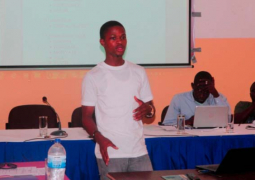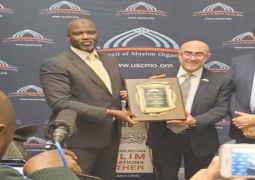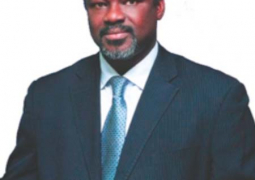Ten
Farmers from Liberia are currently in The Gambia for a 6-day exchange visit of
smallholders and community-based forest and farm producer organizations (FFPOs)
on multi-stakeholder policy platforms, on community forest management.
The
forum was held at the Paradise Suites Hotel in Kololi.
Director
of Urban Agriculture, Sheriff Sanyang, welcomed the delegates to the forum.
He
said: ‘’The Gambia is delighted to host this first exchange and learning visit
for FFPOs and Government of Liberia and The Gambia on Multi-stakeholder policy
platforms, on community forest management and the round table discussions
between FFPOs, resource partners and Government with the aim of up-scaling
forest and farm facility FFF Initiative in Africa,” Sanyang says.
He
described the exchange and learning visit as timely for Gambians because of
overall reform of the Agriculture and natural sector that stated since 2009
with the adopting of an integrated policy framework called the “Agriculture and
Natural Resources Policy”.
According
to Director Sanyang the medium-term specific policy goals of the agricultural
sector are among others to achieve national food self-sufficiency and security
through the promotion of sustainable diversified food production programmes.
He
thanked the Ministry of Agriculture for the effort of The Gambia and Liberia
governments and the support of FAO for initiating the first learning trip
between the two West African FFF pilots.
In
her statement, FAO country representative Madam Perpetua Katepa Kalala thanked
the Government and people of the Islamic Republic of The Gambia for graciously
accepting to host the exchange visit.
The
Gambia has made great strides and achievements since the launching of the
Forest and Farm Facility in March 2013.
Indeed,
owing to the successful implementation of the community forestry policy, The
Gambia had managed to reduce a severe deforestation trend in the country, with
over 350 villages managing 12 per cent of the country’s forest and a net
increase in forest cover of 8.5 per cent over the last two decade.
Madam
Kalala said that during the training period, the team will be engaged in field
visits of forest and farm field activities such as Center for Processing and
Bottling of Honey and Wax, community forest villages involved in eco-tourism,
community-based forestry associations and community-based aqua culture
enterprises alongside rice cultivation.
They
would also hold meeting to share experiences with farmer groups, and a round
table meeting to leverage funding from other sources.
For
his part, Alhagie Basse Mboge, president of the national farmer platform, said:
“In The Gambia having successfully implemented the forest and farm facility
programme, we owe a special thanks and commendations to FAO, the country
facilitator and all other support in the implementation of the FFF pillars.”
He
stated further: “Today we are proud to inform this gathering that, the program
has led to the real capacity building, created awareness and visibility and
also cemented good relationship between forest and farming.”
Mr
Mboge elaborated on their achievements, saying that about 45 per cent of their
members are aware and can talk about the ANR policy as a result of continued
sensitization and training on the ANR policy.
He
said nine producer groups “have successfully benefited from the FFF small grants,
and implementations are in progress”; over 5000 fruits and food trees planted
in various locations for “gaining back our lost biodiversity and forest and
farmers can now develop their own compost at the expense of the chemically
marketed fertilizers for crop production.
Read Other Articles In Article (Archive)





